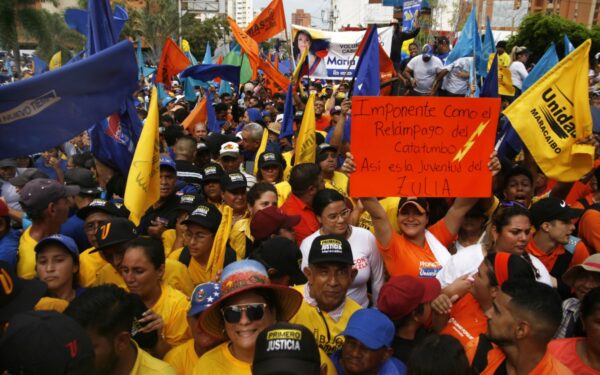On 24th April, Armenians around the world gathered to observe Armenian Genocide Remembrance Day. At local churches and memorials, they commemorated the 1.5 million Armenians who were systematically killed by Ottoman authorities between 1915 and 1923; to this day one of the worst massacres in human history.
Tragically, their pain will be compounded by the ongoing denial and obfuscation of governments across the world, many of whom still refuse to acknowledge it even took place. The UK, for example, has never formally acknowledged the Armenian genocide — and only 33 countries around the world have. Sadly, even the Armenian government itself is beginning to buckle to international pressure, with Prime Minister Nikol Pashinian telling his people to “overcome [their] trauma.”
Turkey is the most ardent of the deniers — acting as if the genocide never happened is a key plank of its state policy. Ankara has used a range of measures to suppress the truth, including funding academic centers to spread revisionist history; taking legal action against scholars and journalists who speak up; and censoring United Nations reports by blocking all mentions of it in official documents.
For its part, the UK engages in a form of “soft denialism”, in which it neither confirms nor denies the reality of the genocide in public. This unofficial policy — born of a desire not to upset Turkey, a key regional ally — might be defended on the grounds of realpolitik, yet it also carries grave unintended consequences. Indeed, by refusing to openly acknowledge this historic crime, the UK risks giving tacit license for further atrocities to be committed in the future.
Take the recent conflict between Armenia and Azerbaijan as an example. In September 2023, Azerbaijan launched a military offensive on the Nagorno-Karabakh region, resulting in the forced displacement of 120,000 Armenians. This followed months of deliberate starvation of the population, in which Azerbaijani forces blocked access to food and medical supplies through a military blockade.
This effective ethnic cleansing has been followed by a series of further provocations against Armenia itself, including Azerbaijan’s President Ilham Aliyev referral to the Republic of Armenia as “Western Azerbaijan“. Azerbaijan has even renamed a street in Stepanakert, Nagorno-Karabakh’s deserted capital, after Enver Pasha, a former Turkish statesman and one of the chief architects of the Armenian genocide.
Observers fear that Azerbaijan may also target Armenian cultural and religious sites in the region, some of which have been present for over 2,000 years. In the Azeri exclave of Nakhchivan, for example, around 98 per cent of Armenian heritage sites have been dismantled.
This pattern of ethnic cleansing, cultural erasure, dehumanizing rhetoric, and politicized Armenophobia are all major warning signs for future atrocities. Indeed, US think tank The Lemkin Institute for Genocide Prevention has issued no less than three red flag alerts on the situation in the South Caucasus — the most severe warning it can give.
In the face of these signals, the British government simply cannot afford to stay silent. Equally, by staying complicit in the denialism of Turkey/Azerbaijan, the UK is sending the message that regional actors can engage in whatever aggression they like without meaningful pushback.
This is also a significant diplomatic barrier to improved relations with Armenia, which is increasingly keen to develop closer political and security ties with the West. The EU recently announced a €270 million deal with Armenia to help boost its economy and increase national resilience; sending a powerful message that Armenia will be supported by the West as it ends its traditional dependence on Russia.
This is a major opportunity for western countries to gain a new strategic ally in the region, yet unfortunately, the UK has been slow to capitalise on the opening. To kickstart the process, a public acknowledgement of the reality of the Armenian genocide would be a timely signal of friendship, whilst sending a clear message that further irredentist aggression in the South Caucasus will not be tolerated by the democratic West.
This would serve both an immediate practical purpose, and a longer-term ethical one. At the end of his infamous Obersalzberg Speech in 1939, Adolf Hitler once asked: “Who, after all, speaks today of the annihilation of the Armenians?”. This ugly precept was used a week later to justify Germany’s brutal invasion of Poland, on the understanding that the Nazi’s horrific crimes against the Poles would soon be forgotten to history.
The implication was clear: If no one today remembers or cares about what happened to 1.5 million Armenians between 1915 and 1923, why would anyone speak up against fresh atrocities? It is in the interest of every nation in the world to prove this idea wrong.
Sam Chandler is a public affairs professional and political commentator with Young Voices UK. Follow him on Twitter: @SamAdamChandler
Write to us with your comments to be considered for publication at letters@reaction.life




